patent
Latest
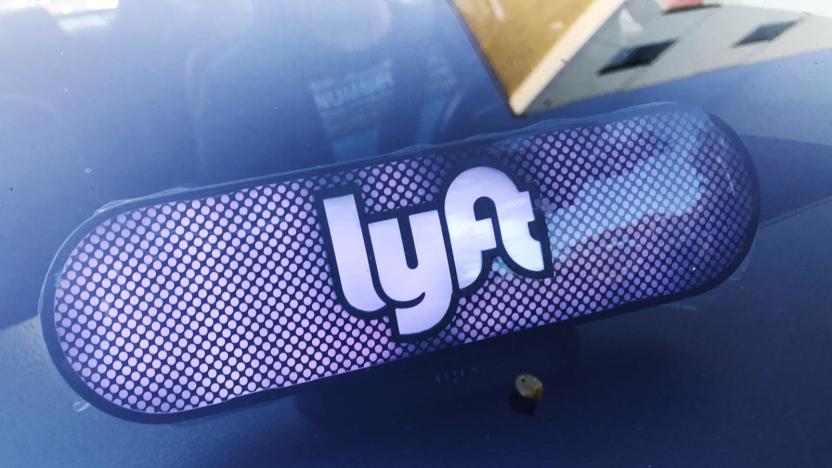
Patent describes how Lyft’s self-driving cars might communicate
Safety is a major concern when it comes to autonomous vehicles, for both the people they're transporting as well as those who are nearby. And it's not yet clear how or even if self-driving cars will communicate with the people around them. But Lyft has just been granted a patent that gives us a look at how it might be planning to address this issue. The patent describes a system that would first detect the location of individuals around the autonomous vehicle and then choose an appropriate message that could be displayed to them via screens and signs on the car itself.
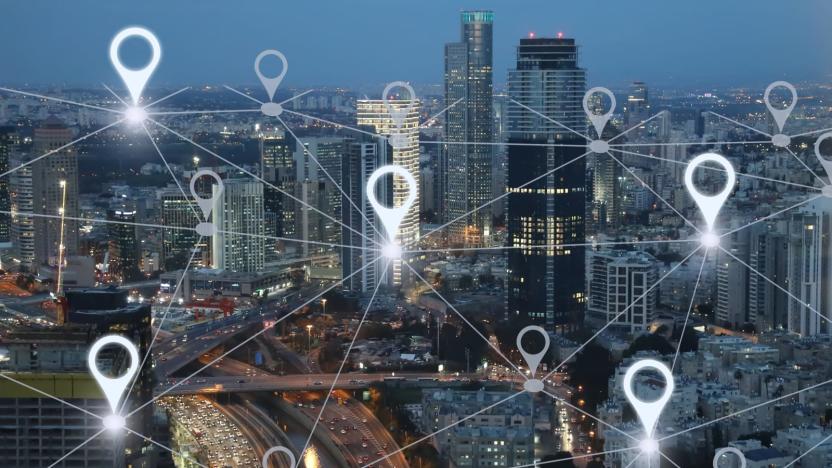
Facebook patents tech that can guess where you're going next
Facebook might not only know where you are in the future, but also where you're going next. Buzzfeed News has discovered that the social network has filed a patent application entitled "Offline Trajectories" for a technology can predict where you're going "based at least in part on previously logged location data." Based on the application's wording, it'll be able to use your previously logged location, as well as other people's, to make predictions.
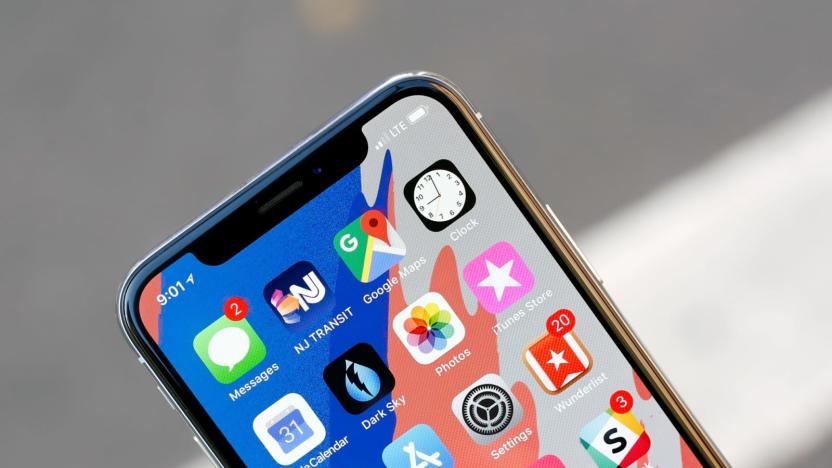
China grants Qualcomm a ban on some iPhone sales, Apple files appeal
A Chinese court granted Qualcomm an injunction against Apple that halts sales and imports of most iPhone models in the country. The court ruled that several devices, including iPhone X, violated two Qualcomm patents related to resizing photos and managing apps. Shortly after this news broke, CNBC reported that Apple was mounting an appeal.

Sony game cartridge patent is for a product called Toio, not a new handheld
Correction, 11/28/18, 11:00AM ET: This post originally stated that "a new patent reveals what Sony might have in store for its next attempt at a handheld console." Further research has revealed that this patent was filed in 2017 and relates to a product known as Sony Toio, which was released last year and features cartridges like those found in this patent filing. Our original post remains below. We apologize for the error. Sony didn't see the success it had hoped for with the PlayStation Vita, but despite claims back in 2015 that there wouldn't be a sequel, the company announced earlier this year it wasn't ready to give up on portable gaming after all. Now, a new patent reveals what Sony might have in store for its next attempt at a handheld console.

LG imagines a smartphone with no less than 16 camera lenses
If the five cameras on LG's V40 ThinQ seemed like a lot to you, how about 16? The Korean company may be working on a smartphone camera with that many lenses, according to a recently filed patent seen by LetsGoDigital. Arranged in a 4x4 matrix, it's designed to capture a scene from multiple perspectives in a single shot. That will allow you to shoot 3D movies and manipulate shots by, say, moving someone's head around or replacing it completely.
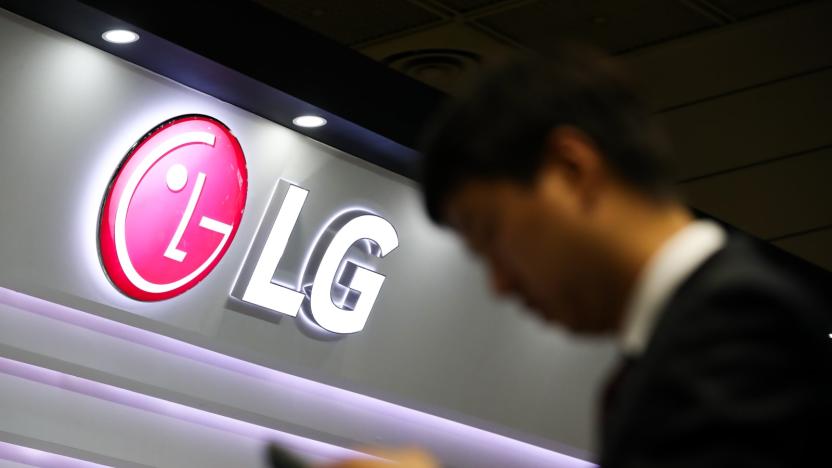
LG hints at foldable plans by trademarking 'Flex,' 'Foldi' and 'Duplex'
Foldable smartphones have been on the agenda for a long time now, with a steady stream of headlines suggesting manufacturers have something in the works, or are planning on launching something at a vague point in the future. LG is certainly one of them, and now a new trademark application may reveal the model names the company has in mind for whatever it eventually conjures.

Google envisions smart roller skates for walking endlessly in VR
Right now the solutions for walking through large virtual reality environments are quite limited. You're typically looking at either a 360-degree treadmill or playing in a gigantic physical space. Google, however, might have a better solution -- although we're not sure if we'd call it elegant. The company has applied for a patent on VR shoes (really, roller skates) that would let you walk anywhere in VR without bumping into a very real wall. The technology would track your feet and use motorized wheels on the footwear to bring you back to a "return zone" whenever you venture beyond a safe area. You'd avoid embarrassing collisions -- though you'd also look like a massive dork, if Google's less-than-flattering illustrations are any indication.

Dyson might design an air purifier that also works as headphones
Dyson has a lengthy list of air purifiers, but it's reportedly considering developing a model that's not quite anything it's ever created before. According to Bloomberg, the company has lodged patents for a wearable air purifier that will double as a pair of headphones. Wearable purifiers are already a thing, especially for countries like China where air pollution gets so bad it can increase the chances of getting stroke or cancer. However, they mostly come in the form of necklaces and, in some cases, scarves or masks.

Apple patent could make it impossible to put headphones on wrong
It's been rumored that Apple has been working on a pair of over-ear headphones for some time now. While the company hasn't revealed any details, a recently approved patent may provide a glimpse into Apple's plans. The patent, titled "System and method for automatic right-left ear detection for headphones," details a concept for a "reversible" pair of headphones that would change left and right ears depending on how you put them on.

Microsoft open-sources 60,000 patents to help Linux avoid lawsuits
Microsoft announced that it's joining the Open Invention Network, an open-source patent group that's dedicated to protecting linux from lawsuits. And in the process, Microsoft has made 60,000 of its patents open source. This is a surprise to many in the developer community as Microsoft has been notoriously protective of its patents. Android and Samsung have even had to pay billions because of infringements, so Microsoft has a vested financial interest in keeping a tight grip. But Microsoft wants to change its reputation, and show how developer-friendly it can be. Developers "want to deploy technologies at the edge--on any device--that meet customer needs," said Eric Anderson, corporate vice president and deputy general counsel. "We also learned that collaborative development through the open source process can accelerate innovation." There are major benefits to being a part of OIN. Companies and developers get access to both OIN-owned patents and cross-licenses between other OIN licensees, sans royalty. Currently, OIN provides a license platform for "roughly 2,650 companies globally," including big names like Google, IBM, NEC, Philips, Sony, and Toyota. For you and me, that means less legal headache for developers--especially those that don't have giant legal teams at their disposal--and potentially faster software releases for all of us. This isn't the first time Microsoft has loosened its hold on patents. The company made a major change two years ago with its Azure IP Advantage Plan, to protect users from patent trolls. And earlier this year, it implemented a new policy saying companies that work with Microsoft on technology solutions could hold on to any patent rights that come out of that partnership. The example used was that of a South Korean hospital and a motion-tracking AI created to collect data on surgeon movements during an operation. The tech was developed at Microsoft, but the hospital held on to the intellectual property. Either way, this move by Microsoft is a major step forward for developers everywhere.
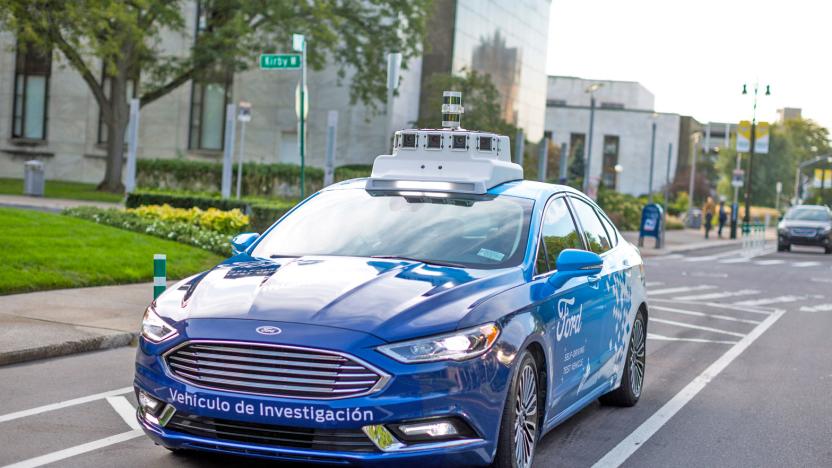
Ford patent would turn autonomous car control into a mobile game
Future self-driving cars might be reliable enough to ditch the steering wheel. But what happens if you do need to take over in a pinch? With Ford, it might be as simple as pulling out your phone. The company recently obtained a US patent for two driving modes that would use a touchscreen device to steer an otherwise autonomous vehicle once you receive permission. The first mode, as Autoblog pointed out, would mimic the tilt-to-steer mechanic from games like Real Racing 3 -- your device's accelerometer and gyroscope would guide the front wheels. It'd be intuitive, if a little disconcerting when it would involve a ton of real metal hurtling down the road.
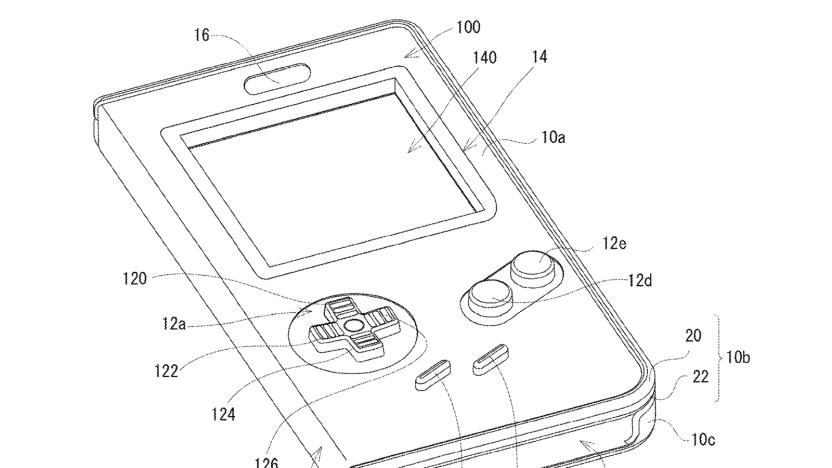
Nintendo could make a playable Game Boy phone case
Now that Nintendo has a couple of nostalgia-inducing consoles under its belt, there's a common question: how would it tackle the Game Boy and other handhelds of yesteryear? We might have an idea. The USPTO recently published a Nintendo patent application for a folio case that would turn a smartphone into a functioning Game Boy replica, complete with physical buttons that translate presses into touchscreen input. It's more than a little familiar if you've tried a device like Hyperkin's Smart Boy, only here you wouldn't need to plug in cartridges to play officially sanctioned game copies.
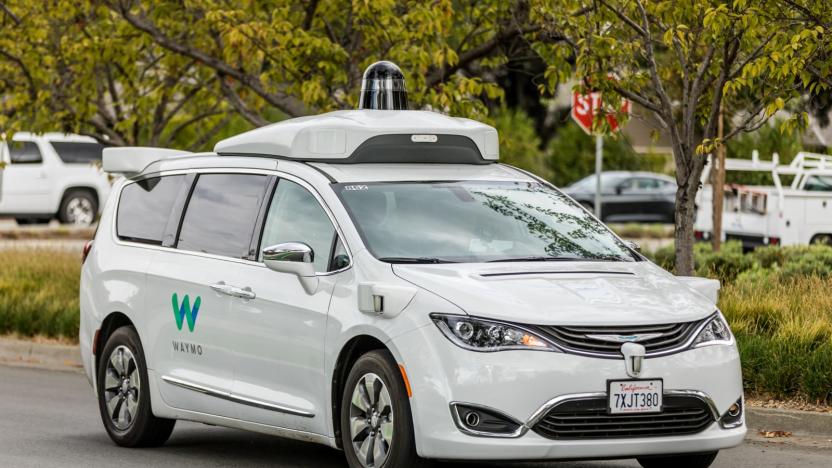
Engineer spends $6,000 invalidating Waymo's lidar patents
An engineer with no connection to the self-driving industry has spent $6,000 of his own money to stop Alphabet's self-driving car business Waymo from patenting key technology. Following a challenge filed by Eric Swildens, the US Patent and Trademark Office (USPTO) rejected 53 out of 56 claims in Waymo's 936 patent. The reason for his action? He just "couldn't imagine the [lidar] circuit [described in the 936 patent] didn't exist prior," Ars Technica reported.
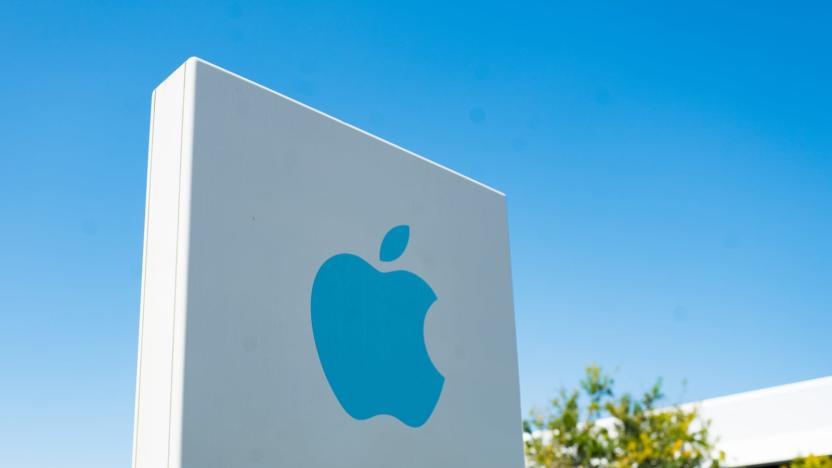
Apple wins appeal in $234 million patent infringement case
Apple has won its attempt to have a patent infringement damages award against it reversed. In 2015, a jury found that Apple had infringed University of Wisconsin-Madison patents with some iPhone processors, and ordered the company to pay the Wisconsin Alumni Research Foundation (which handles the university's patent licensing) $234 million. Last year, a judge increased that figure to $506 million after determining Apple continued to infringe the patent until it expired at the end of 2016.

Facebook sues BlackBerry over voice messaging patent infringement
In the latest battle in the patent war between Facebook and BlackBerry, the social networking giant is suing the phone maker over alleged infringement of six patents, including one related to a voice messaging feature in BBM Enterprise. Facebook asked for a trial to resolve the matter and is seeking unspecified damages in the suit, which it filed in San Francisco federal court.
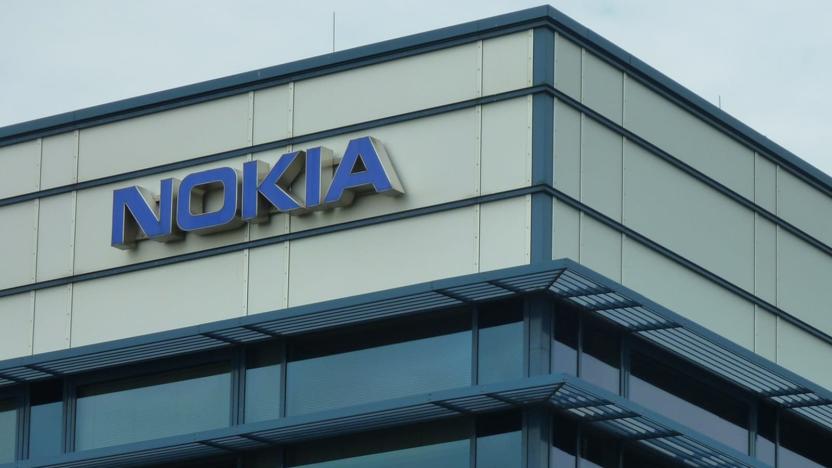
Nokia will make €3 for every 5G smartphone sold
Licensing-related patent wars are pretty run-of-the-mill occurrences for tech companies -- there's always a report of some spat or another in the news. But now Nokia, and a bunch of other giants, are taking steps to avoid future battles by publicly disclosing the licensing fees involved in its 5G technology.

Apple hit with $145 million fine for WiLan patent infringement
Apple has been hit with yet another patent infringement fine. Canadian patent licensing company WiLan took the tech giant to task over two patents relating to wireless communication within the iPhone. WiLan – which isn't shy about suing the wireless industry over alleged patent violations – has been awarded $145.1 million in damages by a federal jury in California. Apple, naturally, says it plans to appeal the decision. This isn't the first time the two companies have locked horns – in 2013 a jury ruled in favour of Apple in a separate litigation where WiLan sought $248 million in damages.
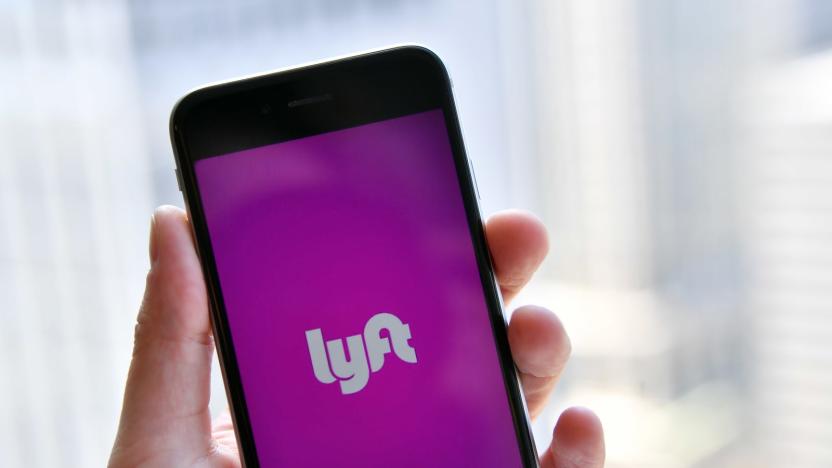
Retired professor sues Lyft for patent infringement
A retired Georgia Institute of Technology professor has sued Lyft for patent infringement, Reuters reports. The professor, Stephen Dickerson, filed his complaint with the New York Southern District Court on Monday through his company RideApp, and it claims that Lyft's business model infringes on Dickerson's ride-sharing patent, which he filed for in 2001. The patent was granted in 2004 and the rights were held by Georgia Tech until Dickerson reacquired them earlier this year. "Professor Dickerson was a transportation visionary," his attorney, Marc Kasowitz, said in a statement. "Lyft's infringement is entirely unwarranted and unlawful."
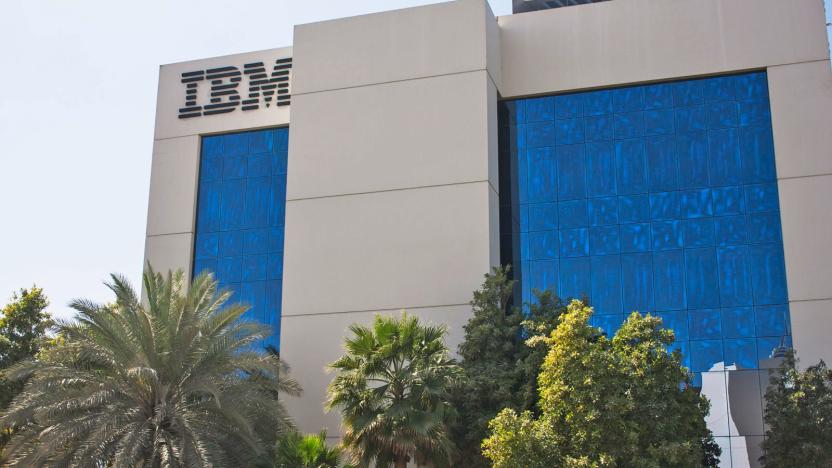
IBM demands $167 million from Groupon for using its patents
IBM and Groupon have been engaged in a legal battle over patents since 2016, with the tech giant accusing the deals website of violating four of its e-commerce IPs without permission. Now, IBM is seeking $167 million from Groupon, telling jurors that other companies like Amazon and Facebook bought licenses to use its technologies for between $20 million to $50 million, while the deals marketplace refuses to do so. "The new kid on the block refuses to take responsibility for the technology it's using," IBM lawyer John Desmarais said in a statement. "IBM spends literally billions of dollars every year on research and development to make our lives easier."
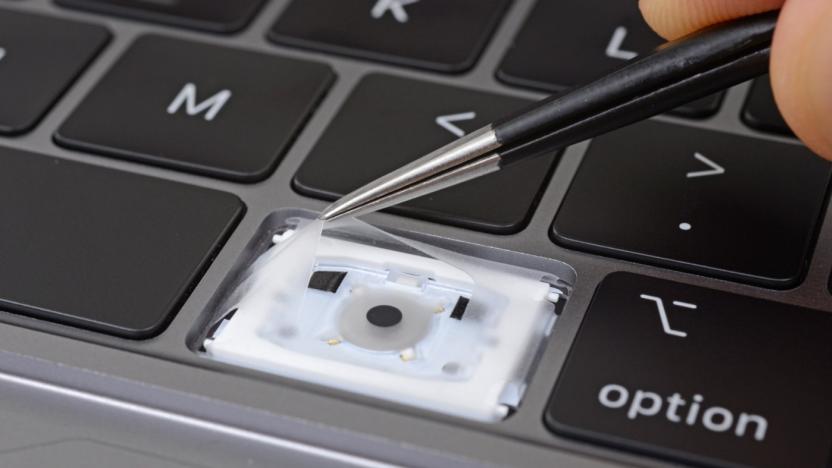
iFixit finds a 'cover-up' inside new MacBook Pro keyboards
While we've been all over the outside of Apple's newest MacBook Pro lineup, iFixit has, as usual, decided to look underneath the hood and find out what's changed from previous models. While it has not published a full teardown report yet, the repair outfit said that the keyboard may have a bigger change than Apple let on. Users have reported problems with the "butterfly switch" keyboards in new Apple laptops for a while saying they're too sensitive to crumbs and dust and can't have individual keys repaired. Still, the company said this iteration only has changes that make them quieter to use.








